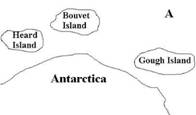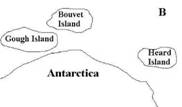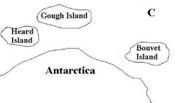
題目列表(包括答案和解析)
A popular saying goes, “Sticks and stones may break my bones, but words will never hurt me.” However, that’s not really true.Words have the power to build us up or tear us down.It doesn’t matter if the words come from someone’s else or ourselves --- the positive and negative effects are just as lasting.
We all talk to ourselves sometimes.We’re usually too embarrassed to admit it, though.In fact, we really shouldn’t be because more and more experts believe talking to ourselves out loud is a healthy habit.
This “self-talk” helps us motivate ourselves, remember things, solve problems, and calm ourselves down.Be aware, though, that as much as 77% of self-talk tends to be negative.So in order to stay positive, we should only speak words of encouragement to ourselves.We should also be quick to give ourselves a pat on the back.The next time you finish a project, do well in a test, or finally clean your room, join me in saying “Good job!”
Often, words come out of our mouths without us thinking about the effect they will have.But we should be aware that our words cause certain responses in others.For example, when returning an item to a store, we might use warm, friendly language during the exchange.And the clerk will probably respond in a similar manner.Or harsh(刻薄的)and critical language will most likely cause the clerk to be defensive.
Words possess power because of their lasting effect.Many of us regret something we once said.And we remember unkind words said to us! Before speaking, we should always ask ourselves: Is it loving? Is it needed? If what we want to say doesn’t pass this test, then it’s better left unsaid.
Words possess power: both positive and negative.Those around us receive encouragement when we speak positively.We can offer hope, build self-esteem(自尊)and motivate others to do their best.Negative words destroy all those things.Will we use our words to hurt or to heal? The choice is ours.
The main idea of the first paragraph is that ________.
A.not sticks and stones but words will hurt us
B.inspiring words give us confidence
C.negative words may let us down
D.words have a lasting effect on us
There is no sense for us to feel embarrassed when we talk to ourselves because _______
A.a(chǎn)lmost everybody has the habit of talking to themselves
B.we can benefit from talking to ourselves
C.talking to ourselves always gives us courage
D.it does no harm to have “self-talk” when we are alone
The underlined part in the third paragraph means that we should also timely _______ .
A.praise ourselves B.remind ourselves
C.make ourselves relaxed D.give ourselves amusement
The author would probably hold the view that ___________
A.encouraging words are sure to lead to kind offers
B.negative words may encourage us to make more progress
C.people tend to remember friendly words
D.it is better to think twice before talking to others
A newly trained teacher named Mary went to teach at a Navajo Indian reservation. Every day, she would ask five of the young Navajo students to __1__ the chalkboard and complete a simple math problem from 2 homework.
They would stand there, silently, 3 to complete the task. Mary couldn’t figure it out. 4 she had studied in her educational curriculum helped, and she 5 hadn’t seen anything like it in her student-teaching days back in Phoenix.
What am I doing wrong? Could I have chosen five students who can’t do the 6 ? Mary would wonder. No, 7 couldn’t be that. Finally she 8 the students what was wrong. And in their answers, she learned a 9 lesson from her young 10 pupils about self-image and a(n) 11 of self-worth.
It seemed that the students 12 each other’s individuality and knew that 13 of them were capable of doing the problems. 14 at their early age, they understood the senselessness of the win-lose approach in the classroom. They believed no one would 15 if any students were shown up or embarrassed at the 16 . So they 17 to compete with each other in public.
Once she understood, Mary changed the system 18 she could check each child’s math problem individually, but not at any child’s expense 19 his classmates. They all wanted to learn, 20 not at someone else’s expense.
1. A.go to B.come to C.get close to D.bring
2. A.his B.their C.his own D.her
3. A.happy B.willingly C.readily D.unwilling
4. A.Anything B.Nothing C.Everything D.Neither
5. A.a(chǎn)lmost B.certainly C.hardly D.never
6. A.question B.chalkboard C.problem D.homework
7. A.they B.it C.everything D.each
8. A.a(chǎn)sked B.questioned C.told D.understood
9. A.outstanding B.surprising C.a(chǎn)nnoying D.frightening
10.A.sunburned B.tender C.Indian D.naughty
11.A.sense B.image C.way D.a(chǎn)spect
12.A.had B.ignored C.respected D.cared
13.A.none B.no one C.each D.not all
14.A.Especially B.Even though C.Even so D.Even
15.A.lose B.win C.a(chǎn)chieve D.a(chǎn)nswer
16.A.time B.situation C.chalkboard D.condition
17.A.refused B.rejected C.tried D.promised
18.A.if B.so that C.unless D.in case
19.A.in favour of B.of C.by means of D.in front of
20.A.a(chǎn)nd B.but C.so D.or
A strong wind can be a dangerous thing — sometimes it is powerful enough to knock you off your feet. But to plants, the wind is a source of new life, carrying them or their spores (孢子) thousands of miles.
A NASA satellite called QuikSCAT has discovered highways of wind over the Earth's oceans. Scientists believe these invisible roads may explain why many nonflowering plants, such as mosses (苔) and lichens (地衣), grow where they do.
The satellite is able to send microwaves (微波) from space to the surface of the ocean. The pattern of signals that come back shows which way the winds are blowing.
Using this data, the scientists studied a group of islands in the southern hemisphere (半球), near Antarctica.Winds tend to blow anticlockwise (逆時(shí)針) in this region, but there are lots of local differences.
When the researchers compared these local patterns to botanical (植物學(xué)) data, they found that the wind had an important effect on where species of mosses, lichens, and other nonflowering plants grow.
For example, Bouvet Island and Heard Island, share 30 per cent of their moss species, 29 per cent of liverworts (葉苔), and 32 per cent of lichens — even though they are 4,430 kilometers apart. In contrast, Gough Island and Bouvet Island, separated by just 1,860 kilometers of sea, share only 16 per cent of mosses and 17 per cent of liverworts. They have no lichens in common.
Ferns (蕨類植物) and flowering plants don't travel as well in the wind, so they don't show the same kinds of distribution (分布) patterns.
This story is about _____.
A.the discovery of wind highways B.how wind travels
C.how wind affects different plants D. one function of the wind
The underlined word "data" in the fourth paragraph means _____.
A.signal B.pattern C.information D. research
Which of the following is wrong?
A.Bouvet Island, Heard Island and Gough Island are all in the southern hemisphere.
B.Winds in the researched area blow anti-clockwise.
C.The scientists shouldn't base this research on how winds affect where ferns grow.
D. Without the discovery of QuikSCAT, the research wouldn't have made sense.
Which of the following diagrams shows the correct position of the islands?




A popular saying goes, “Sticks and stones may break my bones, but words will never hurt me.” However, that’s not really true. Words have the power to build us up or tear us down. It doesn’t matter if the words come from someone’s else or ourselves --- the positive and negative effects are just as lasting.
We all talk to ourselves sometimes. We’re usually too embarrassed to admit it, though. In fact, we really shouldn’t be because more and more experts believe talking to ourselves out loud is a healthy habit.
This “self-talk” helps us motivate ourselves, remember things, solve problems, and calm ourselves down. Be aware, though, that as much as 77% of self-talk tends to be negative. So in order to stay positive, we should only speak words of encouragement to ourselves. We should also be quick to give ourselves a pat on the back. The next time you finish a project, do well in a test, or finally clean your room, join me in saying “Good job!”
Often, words come out of our mouths without us thinking about the effect they will have. But we should be aware that our words cause certain responses in others. For example, when returning an item to a store, we might use warm, friendly language during the exchange. And the clerk will probably respond in a similar manner. Or harsh(刻薄的)and critical language will most likely cause the clerk to be defensive.
Words possess power because of their lasting effect. Many of us regret something we once said. And we remember unkind words said to us! Before speaking, we should always ask ourselves: Is it loving? Is it needed? If what we want to say doesn’t pass this test, then it’s better left unsaid.
Words possess power: both positive and negative. Those around us receive encouragement when we speak positively. We can offer hope, build self-esteem(自尊)and motivate others to do their best. Negative words destroy all those things. Will we use our words to hurt or to heal? The choice is ours.
The main idea of the first paragraph is that ________.
A. words have a lasting effect on us B. not sticks and stones but words will hurt us
C. inspiring words give us confidence D. negative words may let us down
There is no sense for us to feel embarrassed when we talk to ourselves because _______
A. it does no harm to have “self-talk” when we are alone
B. almost everybody has the habit of talking to themselves
C. we can benefit from talking to ourselves
D. talking to ourselves always gives us courage
The underlined part in the third paragraph means that we should also timely _______
A. give ourselves amusement B. praise ourselves
C. remind ourselves D. make ourselves relaxed
The author would probably hold the view that ___________
A. it is better to think twice before talking to others
B. encouraging words are sure to lead to kind offers
C. negative words may stimulate us to make more progress
D. people tend to remember friendly words
A person named Bernard Jackson today is a free man, but he has many bitter memories. He spent five years in prison after a jury (陪審團(tuán)) wrongly convicted (判處……有罪) him of raping two women. At Jackson’s trial, although two witnesses testified that Jackson was with them in another location at the time of the crime, he was convicted anyway. Why? The jury believed the testimony (證詞) of the two victims, who positively identified Jackson as the man who had attacked them. The court eventually freed Jackson after the police found the real criminal.
Many factors influence the accuracy of eyewitness testimony. For instance, witnesses sometimes see photographs of several suspects before they try to identify the person they saw in a group of people. They can become confused by seeing many photographs of similar faces. The number of people in the group, and whether it is a person or a photograph, my also affect a witness’s decision. People sometimes have difficulty identifying people of other races. The questions the police ask witnesses also have an effect on them.
Many people believe that police officers are more reliable than ordinary people. Psychologists decided to test this idea, and they discovered that it is not true. Two psychologists showed a film of crimes to both police officers and civilians. The psychologists found no difference between the police and the civilians in correctly remembering the details of the crimes.
Despite all the possibilities for inaccuracy, courts cannot omit eyewitness testimony from a trial. American courts depend almost completely on eyewitness testimony to resolve (決定) court cases. Sometimes it is the only evidence to a crime, such as rape. Furthermore, eyewitness testimony is often correct. Although people do sometimes make mistakes, and convict innocent people, more importantly, eyewitness testimony has rightly convicted a larger number of guilty people.
American courts depend on the ability of the twelve jurors, and not the judges, to determine the accuracy of the witness’s testimony. It is their responsibility to decide if a certain witness could actually see, hear and remember what happened.
Bernard Jackson was found guilty and sentenced 5 years’ prison because .
A.the victims insisted that he was the attacker
B.the admitted the crime of raping two women
C.the police discovered evidence leading to his guilt
D.the eyewitness proved the victims’ testimony
The following statements may be the reasons for why sometimes the eyewitness’ testimony is not accurate EXCEPT .
A.the eyewitness is confused by the police’s questions
B.the eyewitness is shown photos of many similar faces
C.the eyewitness lacks the professional help from police
D.the eyewitness can’t identify people of other races clearly
.An inaccurate eyewitness testimony may lead to .
A.the misunderstanding of the case B.the disbelief in the court
C.the disrespect for the eyewitness D.the conviction of an innocent person
Eyewitness testimony is important because .
A.it can be relied on to detect criminals in all cases.
B.it is sometimes the only way to resolve court cases.
C.it is sometimes the only clue for police investigation.
D.it is more reliable than physical evidences to a crime.
According to the text, we can infer that .
A.eyewitness testimony is valuable, though sometimes incorrect.
B.police identification is more reliable than that of the ordinary people
C.crime victims often fail to give positive identification of the suspects
D.the jury relies on the judge than the eyewitness for a decision
百度致信 - 練習(xí)冊(cè)列表 - 試題列表
湖北省互聯(lián)網(wǎng)違法和不良信息舉報(bào)平臺(tái) | 網(wǎng)上有害信息舉報(bào)專區(qū) | 電信詐騙舉報(bào)專區(qū) | 涉歷史虛無主義有害信息舉報(bào)專區(qū) | 涉企侵權(quán)舉報(bào)專區(qū)
違法和不良信息舉報(bào)電話:027-86699610 舉報(bào)郵箱:58377363@163.com